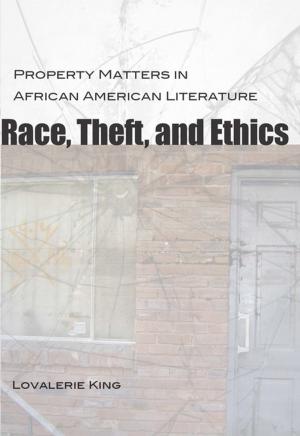Jim Crow’s Last Stand
Nonunanimous Criminal Jury Verdicts in Louisiana
Nonfiction, Reference & Language, Law, Legal History, History, Americas, United States, Social & Cultural Studies, Social Science| Author: | Thomas Aiello | ISBN: | 9780807172537 |
| Publisher: | LSU Press | Publication: | September 2, 2019 |
| Imprint: | LSU Press | Language: | English |
| Author: | Thomas Aiello |
| ISBN: | 9780807172537 |
| Publisher: | LSU Press |
| Publication: | September 2, 2019 |
| Imprint: | LSU Press |
| Language: | English |
A remnant of the racist post-Reconstruction Redeemer sociopolitical agenda, Louisiana’s nonunanimous jury-verdict law permitted juries to convict criminal defendants with only nine, and later ten, out of twelve votes: a legal oddity. On the surface, it was meant to speed convictions. In practice, the law funneled many convicts—especially African Americans—into Louisiana’s burgeoning convict lease system. Although it faced multiple legal challenges through the years, the law endured well after convict leasing had ended. Few were aware of its existence, let alone its original purpose. In fact, the original publication of Jim Crow’s Last Stand was one of the first attempts to call attention to the historical injustice caused by this law.
This updated edition of Jim Crow’s Last Stand unpacks the origins of the statute in Bourbon Louisiana, traces its survival through the civil rights era, and ends with the successful effort to overturn the nonunanimous jury practice, a policy that officially went into effect on January 1, 2019.
A remnant of the racist post-Reconstruction Redeemer sociopolitical agenda, Louisiana’s nonunanimous jury-verdict law permitted juries to convict criminal defendants with only nine, and later ten, out of twelve votes: a legal oddity. On the surface, it was meant to speed convictions. In practice, the law funneled many convicts—especially African Americans—into Louisiana’s burgeoning convict lease system. Although it faced multiple legal challenges through the years, the law endured well after convict leasing had ended. Few were aware of its existence, let alone its original purpose. In fact, the original publication of Jim Crow’s Last Stand was one of the first attempts to call attention to the historical injustice caused by this law.
This updated edition of Jim Crow’s Last Stand unpacks the origins of the statute in Bourbon Louisiana, traces its survival through the civil rights era, and ends with the successful effort to overturn the nonunanimous jury practice, a policy that officially went into effect on January 1, 2019.















